#Nathalie Lissenko
Explore tagged Tumblr posts
Photo
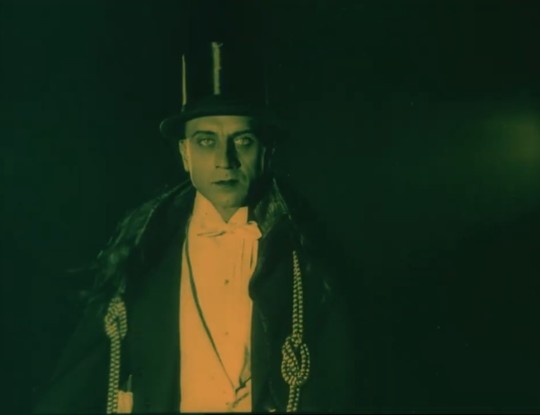
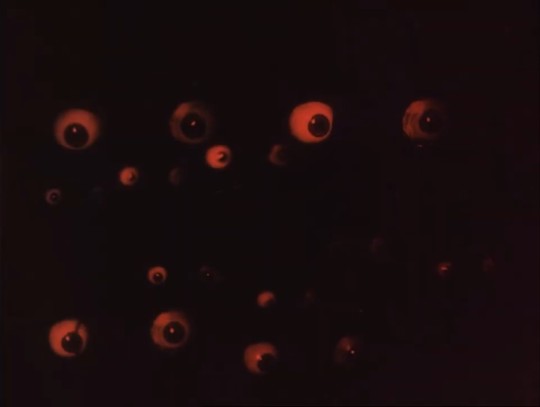
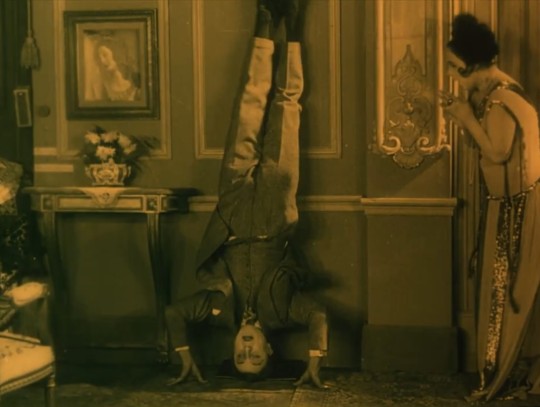

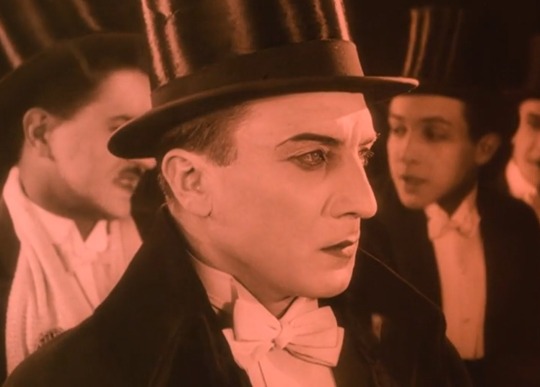
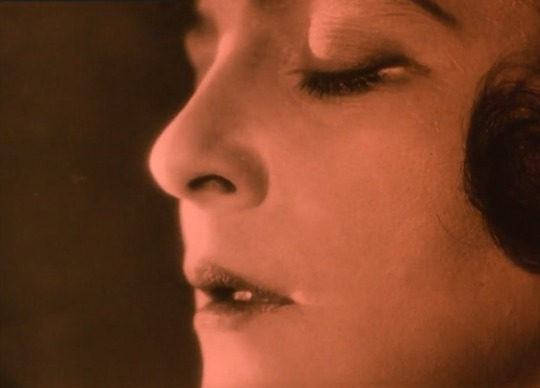
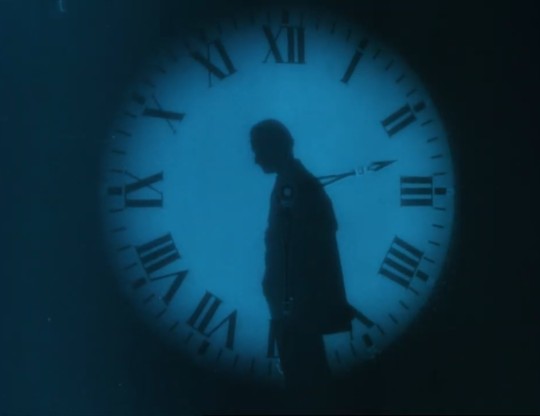
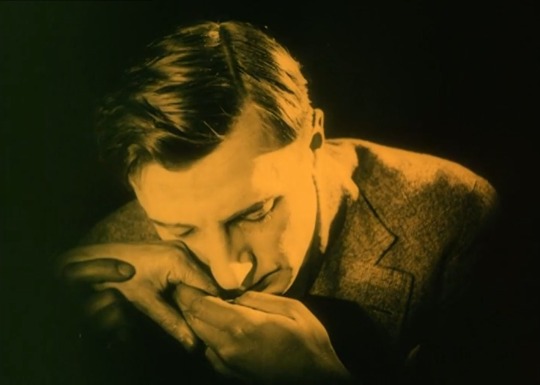
Le Brasier ardent (Ivan Mosjoukine, 1923)
#le brasier ardent#ivan mosjoukine#nathalie lissenko#nicolas koline#film#classic film#silent film#silent cinema#silent era#french film#french cinema#my screencaps#1920s
151 notes
·
View notes
Text

Le Brasier ardent (1923)
[letterboxd | imdb]
Archive: HENRI by La Cinémathèque française
Director: Ivan Mosjoukine
Directors of Photography: Joseph-Louis Mundwiller, Nikolai Toporkoff
Performer(s): Ivan Mosjoukine, Nathalie Lissenko, Nicolas Koline
Languages: French Intertitles
Music: Neil Brand
Runtime: 108 min.
#HENRI#La Cinémathèque française#Ivan Mosjoukine#Nathalie Lissenko#France#French#>60#with music#silent cinema#silent movies#silent film#drama#classic film#classic movies#1920s#1923
0 notes
Text
WORLD CINEMA’S TOP 236 ACTRESSES OF ALL TIME! (@INDIES)
http://www.imdb.com/list/ls569475215/
Position. Name.
1 Barbara Stanwyck 2 Olivia de Havilland 3 Meena Kumari 4 Geraldine Page 5 Audrey Hepburn 6 Suchitra Sen 7 Vivien Leigh 8 Ginger Rogers 9 Elizabeth Taylor 10 Katharine Hepburn 11 Kate Winslet 12 Julia Roberts 13 Norma Shearer 14 Nathalie Lissenko 15 Hasmik Agopyan 16 Catherine Deneuve 17 Chulpan Khamatova 18 Nataliya Vdovina 19 Elena Solovey 20 Brigitte Bardot 21 Aleksandra Khokhlova 22 Jeanne Moreau 23 Anna Karina 24 Isabelle Adjani 25 Romy Schneider 26 Léa Seydoux 27 Mélanie Laurent 28 Audrey Tautou 29 Ekaterina Chtchelkanova 30 Vanessa Paradis 31 Simone Signoret 32 Emmanuelle Béart 33 Isabelle Huppert 34 Sandrine Bonnaire 35 Carole Bouquet 36 Anne Parillaud 37 Fanny Ardant 38 Sophie Marceau 39 Nathalie Baye 40 Anouk Aimée 41 Alexa Davalos 42 Josiane Balasko 43 Clémence Poésy 44 Natalija Janichkina 45 Laetitia Casta 46 Eva Green 47 Elodie Yung 48 Kristin Scott Thomas 49 Anna Mouglalis 50 Astrid Bergès-Frisbey 51 Charlotte Gainsbourg 52 Capucine 53 Roxane Mesquida 54 Jane Birkin 55 Bérénice Bejo 56 Olga Kurylenko 57 Leslie Caron 58 Josephine Baker 59 Pom Klementieff 60 Noémie Merlant 61 Adèle Haenel 62 Adèle Exarchopoulos 63 Emma Mackey 64 Yael Grobglas 65 Emmanuelle Seigner 66 Juliette Binoche 67 Ellen Burstyn 68 Madhavi Mukherjee 69 Isabelle Weingarten 70 Sarah Adler 71 Christa Théret 72 Karin Viard 73 Déborah François 74 Marie Gillain 75 Juliet Berto 76 Mélanie Doutey 77 Monique Mélinand 78 Stéphane Audran 79 Léa Drucker 80 Dominique Labourier 81 Angélique Litzenburger 82 Françoise Lebrun 83 Valérie Donzelli 84 Bernadette Lafont 85 Sylvie Testud 86 Cécile de France 87 Katia Leclerc O'Wallis 88 Zouzou 89 Françoise Fabian 90 Maria Schneider 91 Agn��¨s Jaoui 92 Valeria Bruni Tedeschi 93 Aurora Cornu 94 Stacy Martin 95 Lola Créton 96 Laurence de Monaghan 97 Dominique Blanc 98 Béatrice Romand 99 Mélanie Thierry 100 Caroline Cellier 101 Michèle Moretti 102 Geneviève Page 103 Elina Labourdette 104 Anne Wiazemsky 105 Marie Dubois 106 Claudine Auger 107 Annie Girardot 108 Juliette Mayniel 109 Brigitte Fossey 110 Martine Carol 111 Dolly Scal 112 Patricia Gozzi 113 Marilou Berry 114 Maria Mauban 115 Janine Darcey 116 Suzanne Flon 117 Colette Marchand 118 Françoise Arnoul 119 Ludivine Sagnier 120 Béatrice Dalle 121 Claude Nollier 122 Josette Day 123 Nicole Stéphane 124 Catherine Salée 125 Dominique Sanda 126 Marina Hands 127 Cécile Aubry 128 Nicole Ladmiral 129 Bulle Ogier 130 Véra Clouzot 131 Simone Renant 132 Sylvia Bataille 133 Suzy Delair 134 Jane Marken 135 Nane Germon 136 Lucienne Bogaert 137 Renée Carl 138 Catherine Frot 139 MarÃa Casares 140 Arletty 141 Odette Joyeux 142 Marguerite Moreno 143 Madeleine Robinson 144 Héléna Manson 145 Paulette Dubost 146 Micheline Francey 147 Ginette Leclerc 148 Mady Berry 149 Edwige Feuillère 150 Jacqueline Laurent 151 Mila Parély 152 Florelle 153 Claudette Colbert 154 Danielle Darrieux 155 Rolla France 156 Annabella 157 Anne Chevalier 158 Lya Lys 159 Simone Mareuil 160 Maria Falconetti 161 Yvette Andréyor 162 Musidora 163 Nora Arnezeder 164 Virginie Ledoyen 165 Michèle Morgan 166 Marine Vacth 167 Louise Bourgoin 168 Caridad de Laberdesque 169 Pauline Carton 170 Sévérine Lerczinska 171 Odette Talazac 172 Léora Barbara 173 Simone Simon 174 Marion Cotillard 175 Mireille Darc 176 Edith Scob 177 Chantal Goya 178 Emmanuelle Riva 179 Chiara Mastroianni 180 Claire Maurier 181 Marika Green 182 Delphine Seyrig 183 Mylène Demongeot 184 Marie-France Pisier 185 Françoise Dorléac 186 Marina Vlady 187 Stella Dassas 188 Marpessa Dawn 189 Elsa Zylberstein 190 Bleuette Bernon 191 Sara Forestier 192 Pascale Ogier 193 Amanda Langlet 194 Julie Delpy 195 Linh-Dan Pham 196 Nelly Borgeaud 197 Nicole Garcia 198 Irène Jacob 199 Myriem Roussel 200 Arielle Dombasle 201 Marie Rivière 202 Solveig Dommartin 203 Émilie Dequenne 204 Ariane Labed 205 Zabou Breitman 206 Romane Bohringer 207 Sabine Azéma 208 Hafsia Herzi 209 Andréa Ferréol 210 Jeanne Balibar 211 Isabelle Renauld 212 Mireille Perrier 213 Juliana Samarine 214 Catherine Mouchet 215 Aurora Marion 216 Anaïs Demoustier 217 Judith Chemla 218 Marie Laforêt 219 Michele Valley 220 Hélène Alexandridis 221 Anne Consigny 222 Macha Méril 223 Anne Brochet 224 Miou-Miou 225 Anne Teyssèdre 226 Joséphine Sanz 227 Gabrielle Sanz 228 Fantine Harduin 229 Charlotte Véry 230 Élodie Bouchez 231 Natacha Régnier 232 Pili Groyne 233 Yolande Moreau 234 Emmanuelle Devos 235 Nina Meurisse 236 Florence Darel
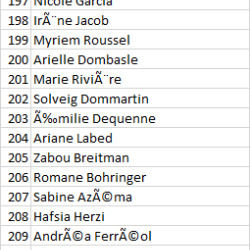
6 notes
·
View notes
Photo






Yakov Protazanov, {1916} Подайте Христа ради ей (Нищая) (Give Her Something, For the Sake of Christ! (Poor Woman))
#film#gif#filmgifs#yakov protazanov#Подайте Христа ради ей (Нищая)#Give Her Something For the Sake of Christ! (Poor Woman)#Подайте Христа ради ей#Нищая#Give Her Something For the Sake of Christ!#poor woman#nathalie lissenko#1916#black and white#marked frames#care work#interiors#landscapes#trees#skies#clouds#russia#male filmmakers#feature length#silent film#1910s#films#.gif#film diary 2020#people#mirrors
7 notes
·
View notes
Photo

Nathalie Lissenko Kean ou Désordre et génie, Alexandre Volkoff (1924).
2 notes
·
View notes
Photo

le brasier ardent (1923)
1 note
·
View note
Photo

Vitold Polonsky and Lidya Ryndina
Russian postcard, no. 174. Collection Didier Hanson.
Vitold Polonsky (1879-1919) was one of the most popular actors in pre-Revolutionary Russian cinema.
Russian actress and author Lidya Ryndina (1884-1957) was with Vera Kholodnaya, and Vera Karalli one of the major film divas of the silent cinema of the Russian Empire. Flying the revolution, she moved to Germany where she also made a few silent films during the 1920s.
Lidiya Dmitrievna Ryndina (or Lidiya T. Ryndina according to IMDb ) was born in 1884. She was a daughter of a Russian General. Ryndina started her career as a stage actress in Kiev. Ryndina started her career as a stage actress in Kiev. She later performed at the Alexandrinsky Theatre in Saint Petersburg, and the Korsh Theatre and the Nezlobin Theatre in Moscow. In 1913, she started to appear in films for producer Iosif N. Ermoliev. She became known with roles in such silent Russian films as Peterburgskiye trushchobi/The Lower Depths of St. Petersburg (Pyotr Chardynin, Vladimir Gardin, Yakov Protazanov, 1915) with Vladimir Maksimov and Ivan Mozzhukhin, and Nikolay Stavrogin (Yakov Protazanov, 1915) with Ivan Mozzhukhin and Nathalie Lissenko. The latter was based on Fyodor Dostoevsky’s story Devils. She worked several times with the most important filmmaker of the early Russian cinema, Yevgeni Bauer. Their films include Lulia Bek (Yevgeni Bauer, 1914), Vozmezdie (Yevgeni Bauer, 1916) with Vitold Polonsky and Vera Karalli, and Lozh (Yevgeni Bauer, 1916). She also co-starred with Vladimir Strizhevsky in Zhizn trekh dney/A life of three days (Gromov, 1917).
Lidiya Ryndina left Russia because after the Russian Revolution. In fact in 1917, there was a pair of revolutions in Russia in 1917 which dismantled the Tsarist autocracy and led to the rise of the Soviet Union. In 1919, Ryndina first went to the Krim, then to Constantinople and from there to Western Europe. In Austria, and later in Germany, she was able to appear in few films during the 1920s. In 1922, she appeared in Der Unbekannte aus Russland/The Unknown from Russia (Hans Otto, 1922), based on a script by Béla Balázs. She also appeared in a supporting part in Der Mann auf dem Kometen/The Man on the Comet (Alfred Halm, 1925) with Luciano Albertini and Maly Delschaft. After the war, she moved to Paris, where she played in Henrik Ibsen’s play Ghosts. Lidya Ryndina passed away in Paris in 1957. She was married twice, first to a man called Brylkin and later to the Russian poet and publisher Sergey Alexeevich Sokolov-Krechetov.
Source: Čiurlionis, Find A Grave, Ciné-Phil-Azr (French), Wikipedia (Russian) and IMDb.
6 notes
·
View notes
Photo

Le Lion des Mogols de Jean Epstein France / 1924 1:46:12
Avec Ivan Mosjoukine, Nathalie Lissenko, Camille Bardou.
Le Lion des Mogols a été reconstruit en 1966 par Marie Epstein à partir du négatif original nitrate acquis par la Cinémathèque française en 1958.
Le royaume des Mogols est plongé dans le chaos le plus total. Le prince Roundghito-Sing s'en échappe pour aller faire du cinéma en France. À Paris, il connaît la célébrité et s'adonne aux plaisirs qu'offre la capitale.
source : HENRI Des films rares de la Cinémathèque française à voir en ligne
2 notes
·
View notes
Text
Satan Triumphant 1917
In a small town live two brothers, one a minister and the other one a hunchback painter of the chapel who lives with his wife. One dreadful and stormy night, a stranger knocks at the door asking for shelter. The stranger talks about all the good things of the earthly life the minister is missing because of his puritanical faith. The minister comes to accept the stranger’s viewpoint but it is…
View On WordPress
0 notes
Video
<strong>Ye. Volkonskaya <a href="https://www.flickr.com/photos/truusbobjantoo/">by Truus, Bob & Jan too!</a></strong> <br /><i>Via Flickr:</i> <br />Russian postcard. Photo: Parikas Foto, Collection: Didier Hanson.
Russian actress Ye. Volkonskaya is known for the silent films La fille sauvage/The Wild Girl (Henri Étiévant, 1922) with Nathalie Lissenko, Medvezhya svadba/The Bear's Wedding (Konstantin Eggert, Vladimir Gardin, 1925) and Belyy oryol/The Lash of the Czar (Yakov Protazanov, 1928), starring Vasili Kachalov and Anna Sten.
Source: IMDb.
#Ye. Volkonskaya#Ye.#Volkonskaya#Russian#Actress#Silent#Cinema#Film#Cine#Kino#Picture#Screen#Movie#Movies#Filmster#Star#Icon#Legend#Vintage#Postcard#Carte#Postale#Cartolina#Postkarte#Tarjet#Postal#Postkaart#Ansichtkaart#photography#fashion
14 notes
·
View notes
Photo

ENERO 18, 1939
MUERE EL ACTOR RUSO IVAN MOZZHUKHIN
Satan Triumphant Satana likuyushchiy Dir. Yakov Protazanov Rusia 1917
#satan triumphant#yakov protazanov#ivan mozzhukhin#nathalie lissenko#cine ruso#cine 1910#DíasDeCine#(Oscuros)DíasDeCine#VeoCineDiario
1 note
·
View note
Photo


Le Brasier ardent (1923) dir. Ivan Mosjoukine
“Mosjoukine’s most innovative use of Expressionism occurs during the editing of one particular sequence, that in which Z plays piano in a bar and Elle’s emotional turbulence surfaces. Mosjoukine builds suspense in the scene as it moves through a number of styles, from a very slow shot/reverse shot in which Z and Elle look into each other’s eyes to a rapid sequence at the end of the scene, when an extremely high volume of shots unfold, the average shot length of which is between only one and two seconds. The editing is used to create an explosion of neurotic jealousy experienced by the would-be lovers. This sequence conveys not just these feelings of emotional disturbance experienced by the lead characters, but also the wild sexual excitement of the audience, comprising licentious females and aroused males who dance to the increasing tempo of Z’s piano playing. Editing is less often examined as a feature of German Expressionist cinema, but that is indeed its purpose at this point in Le Brasier ardent. The fast and pronounced editing style—as well as the particular images being cut—generates a form of expressionist editing that communicates individual and mass neuroses and sexual desire. The result, to borrow a phrase from Béla Balázs, conveys the crowd’s most “expressive expression.” Put another way, here is editing that— as Kasimir Edschmid might say—“grasps what is behind” the characters—their increasing sexual desires—and rips them frenetically to the surface.” Bernard McCarron, Ivan Mosjoukine's clin d'oeil to German Expressionism in Expressionism in the Cinema, 2016.
#le brasier ardent#ivan mosjoukine#nathalie lissenko#film#classic film#classicfilmsource#classicfilmedit#silent film#silent cinema#silent era#french film#french cinema#expressionism#1920s#moviegifs#filmgifs#my gifs
49 notes
·
View notes
Photo

Nathalie Lissenko and Ivan Mosjoukine in L’angoissante aventure (1920)
Direction: Jacob Protozanoff
Costumes: Not credited
7 notes
·
View notes
Text
Ivan Mosjoukine wrote, directed and starred in this dramedy about a wealthy playboy whose life is turned upside-down when he discovers a baby boy on his doorstep. We all know where this is going but getting there is all the fun.
Home Media Availability: Released on YouTube for free and legal viewing.
Two Men and a Baby
The Russian Revolution was a dark, dangerous time and a good number of the top stars, directors, writers and other movie personnel decided that they would rather wait the conflict out in the relative safety of Paris. The émigrés soon became beloved celebrities, their patented blend of art and crowd-pleasing won them fame and fortune across Europe. (American audiences remained more or less apathetic.) The biggest émigré star was Ivan Mosjoukine, an actor of impressive range and versatility.
Mosjoukine in “The Burning Crucible”
The multi-talented Mosjoukine tried his hand at directing and some of you may be familiar with his delightfully insane mystery, The Burning Crucible. L’Enfant du carnaval (The Child of the Carnival) is not nearly as well-known (a documentary about Mosjoukine borrowed the title and the star himself remade the picture in the sound era) and has mainly been available in fragments and at film festival screenings. Thanks to collector Christopher Bird, we are going to be seeing it in English for the first time.
A cause for celebration!
As usual, this was a group effort and I want to take a moment to thank everyone for their kind assistance. Mr. Bird provided the 9.5mm print and did the post-production work (including recreating the title cards), as well as contributing his research; Lynne Wake translated the titles and selected and edited the score; Dino Everett of the Hugh M. Hefner Moving Image Archive transferred the film and also provided a second 9.5mm print, which was used to provide footage where needed; Kevin Brownlow provided background material on the film (reviews, stills, etc.); Anthony Bird translated an original French review into English; Lenny Borger answered research questions and provided reconstructed credits.
And a hearty cheer to one and all! Now let’s enjoy the film.
Laurel and Hardy contemplate “Their First Mistake”
Here’s a plot device that filmmakers have never tired of using: a decidedly non-parental person is suddenly forced to care for an infant. From Charlie Chaplin’s tramp (The Kid) to Stan and Ollie (Their First Mistake) to Porky Pig (Brother Brat) to a trio of bachelors (Trois hommes et un couffin and its American remake, Three Men and a Baby) to an ambitious businesswoman (Baby Boom), the joke never seems to run out of variations. The appeal is obvious: we get to guffaw at the new parent’s awkwardness and unorthodox problem solving while still finding them likable for trying at all.
Power suits meet Pampers
In the case of Enfant, the story is classic take on the device. Marquis Serge de Granier (Mosjoukine) is a party boy who is more often drunk than sober. Philippe (Bartkevitch, last seen being murdered in The House of Mystery) is his long-suffering valet. On the day of a carnival, Philippe meets Yvonne (Nathalie Lissenko), a young widow who is starving so that her baby can eat.
The valet and the mother.
He is touched by her plight and slips some money into her basket. Yvonne sees Philippe enter the gate of a grand manor, mistakes him for the master of the house and makes a decision. Her son will be much better off in the care of a wealthy and generous man, so she leaves him in a basket on the doorstep.
He would remember if he had a baby.
Serge returns home as tight as a tick and discovers the baby. He jokes that the child must be drunk on milk and ended up at the wrong house but underneath his tipsy demeanor, Serge is just as soft as Philippe. He takes the baby inside and Philippe, who does not recognize the baby from earlier in the day, quips that the little “present” has been returned to its rightful owner. Nudge nudge.
A note in the baby’s swaddling reveals that he is named Paul and that his mother is surrendering him because she is too poor. Touched and flattered, Serge decides to embark on fatherhood.
Sassy Philippe.
Of course, a nurse is required for such an enterprise. Serge advertises and Yvonne answers because this is a movie. Philippe realizes who she is but promises to keep her identity a secret. Yvonne is soon employed as a nurse for her own child. Will Serge ever discover the truth?
And will he survive the ordeal?
Since this is an abbreviated print, it is impossible to say for certain but it does seem that some of the mad flourishes that adorned The Burning Crucible are not present in L’Enfant du carnaval. (Though there is a very nice bit of business with a roulette wheel.) Instead, Mosjoukine focuses on the emotional rollercoaster that the characters are riding.
This slideshow requires JavaScript.
Serge is a particularly charming hero for the tale, a sort of Russo-French Bertie Wooster who crawls in at all hours wearing things like garters on his head. He figures he can treat little Paul like a miniature drinking buddy and everything will work out fine.
Serge and Philippe try their hand at childcare.
The scenes in which Serge decides that he needs to hire a nurse are particularly amusing. He tries to foist the day-to-day care of Paul onto Philippe but the wily valet is having none of it. He explains that caring for a baby is beneath the dignity of his station. Serge attempts childcare on his own, braving baths baby powder and sleeplessness but meets his Waterloo when the freshly bathed and powdered Paul… um, well… What can I say? Babies will be babies.
Poor Serge…
The small supporting cast is also excellent. Bartkevitch has fun with has fun with his role as the kindly but slightly sarcastic Philippe. As usual, Lissenko provides an emotional anchor for Mosjoukine’s wacky antics and ends up acting as a mother for both the baby and his adoptive father. While Mosjoukine has the flashier role, Lissenko adds some much-needed stability to the picture. The scene between Philippe and Yvonne when she recognizes her own baby is lovely and the two actors play their parts with great restraint, conveying their emotions without resorting to histrionics.
A shared secret.
Quick side note on Lissenko and Mosjoukine: while everyone agrees they were an item, there is disagreement as to whether or not they were actually married. Some of their friends say they were, others say they weren’t. Since the waters are so muddied and the point is so minor (no one denies they were a couple, it’s all a matter of filing the paperwork), I am going to simply give the whole thing a shrug and move on.
Let’s discuss another bit of background: Was Mosjoukine influenced by Chaplin’s The Kid? Well, the timing fits and Mosjoukine was a fan of Chaplin’s work so I think we can surmise that it was at least a consideration. However, Mosjoukine puts his own spin on the tale and it does not feel derivative, just another chapter in the long history of movie inspiration ping-ponging back and forth around the international film community. (My favorite example of this is The Glass Key to Yojimbo to A Fistful of Dollars and so forth.)
Don’t try this at home!
Speaking of movies and culture, we must discuss editing for home release and the ending of this picture. (Spoilers, obviously.) The cutdown version released on 9.5mm omits the final twist of the film and simply ends with Yvonne and Serge holding an engagement party and giving Paul a full glass of champagne. The theatrical cut had one final trick up its sleeve: The kid’s father is still alive and he shows up to claim his wife and child. Serge is left alone.
No happy ending?
Oh dear. In the first place, did no one check? I mean, did they just toss the husband on a cart like a Monty Python sketch? (“I’m not dead!” “Yes, you are!”) What the heck? Plus, the whole thing reeks of tragedy for tragedy’s sake. I could see it working better if the man in question disappeared at sea or something else ambiguous but even then, it would seem premature to start marrying again without a body.
We want love!
Lest you think this is a case of an American not understanding European downer endings, at least one French critic of the time panned the film’s finale. Here is a snippet from a review found in the July 29, 1921 issue of Cinemagazine, which makes a direct appeal to the film’s producer, Joseph Ermolieff:
But I’ll just allow myself one very little reservation: right up to the end, this ‘dramatic comedy’ is part happy, part sentimental. But, in stretching out the length it tries to be tragic, and only succeeds in being melodramatic, in the worst sense of the word. Now, the public, which could have formed a favorable impression, will inevitably find ridiculous a film which, 100 meters (approximately 5 minutes) earlier, it would have found charming
Ermolieff, don’t hesitate, chop off the ending. You’ll lose some of the length, which is painful, but it the public will thank you for it – and that’s something, you know.
In light of this, dear readers, I am going to go out on a limb and say that whoever cut the 9.5mm version made the correct choice in slicing off the last few minutes. The film is much better without them so if you don’t mind, I prefer to think of this film as ending with a little kid guzzling champagne at his mother’s engagement party.
This is what we came for!
I do wonder if Mosjoukine’s decision to tack on a Slavic-tinged tragedy was an overreaction to the film that he made just before Enfant. L’angoissante aventure (A Narrow Escape) was directed by Yakov Protazanov, who would famously ditch Paris for a return ticket to Russia, and starred Mosjoukine as a well-heeled young man whose missteps drive him to poverty. When he attempts to rob his family’s home, he ends up murdering his own father. But then it turns out that it was all a dream.
Early attempts to market Russian films in the United States. (click to enlarge)
Making Aventure had been a madcap affair with portions of the picture filmed in Yalta, Istanbul and Paris as the creative team retreated from Crimea mid-production as Baron Wrangel’s forces fell to the Bolsheviks. The picture was released at a time when the emigres were establishing their brand in France and it is not outside the realm of possibility that they opted for a more crowd-pleasing conclusion in order to hedge their bets.
Downer endings used as a marketing strategy in America. It didn’t work. (click to enlarge)
Ermolieff, the producer of both Enfant and Aventure, was using his personal capital and that of fellow Russian exiles to get the émigré productions off the ground. (He was also clever enough to bring along negatives of the émigrés’ Russian productions. These films were retitled in French and used as a source of funds and a way to introduce Russian stars to the world.)
One of many spelling changes Иван Мозжухин would make in his international career.
The first pictures of a new production company are always do-or-die affairs and minimizing risk would be a primary concern, especially considering that returning to Russia was simply not an option for the majority of the cast and crew and they couldn’t live off those old negatives forever. (For comparison, Mary Pickford’s very first film for her fledgling United Artists studio was Pollyanna, as safe a bet as could be for Producer Pickford but a bit of a drag for Actor Pickford to play.)
Yay! Gloom!
By the time L’Enfant du carnaval was released, the Ermolieff crew clearly felt comfortable enough in their new surroundings to attempt to inject a bit of gloom. Deprived of their patricide in L’angoissante aventure, Mosjoukine and company took away the happy ending of Enfant. Of course, the problem is that it is tragedy for the sake of tragedy and feels artificial rather than organic. (I have no letters, articles or other evidence to back up my theory but I think it is a reasonable enough assumption.)
I’m sorry, we’re fresh out of happy endings.
While I would love to see the full version of Enfant, I think that the condensed 9.5mm version stands on its own as a charming romantic comedy in miniature. Mosjoukine charms the socks off the audience, the story is tight and the jokes land beautifully. It’s a deeply satisfying slice of film and makes one wish that Mosjoukine had not given up directing entirely. An ideal pick-me-up, I recommend it without reservation.
Where can I see it?
Mr. Bird has kindly uploaded the 9.5mm abridgement to YouTube, where it can be viewed legally and for free. Does it get any better?
L’Enfant du carnaval (1921) A Silent Film Review Ivan Mosjoukine wrote, directed and starred in this dramedy about a wealthy playboy whose life is turned upside-down when he discovers a baby boy on his doorstep.
#1921#French Film#Ivan Mosjoukine#L&039;Enfant du carnaval#Nathalie Lissenko#Russian Film#The Child of the Carnival
1 note
·
View note
Photo




Nathalie Lissenko Le Brasier ardent, Ivan Mosjoukine (1923).
27 notes
·
View notes
Photo

6 notes
·
View notes